-
 Bitcoin
Bitcoin $84,094.4129
1.60% -
 Ethereum
Ethereum $1,821.7742
0.59% -
 Tether USDt
Tether USDt $0.9997
0.00% -
 XRP
XRP $2.1407
3.87% -
 BNB
BNB $598.6984
1.20% -
 Solana
Solana $123.4827
5.75% -
 USDC
USDC $1.0000
0.01% -
 Dogecoin
Dogecoin $0.1722
7.24% -
 Cardano
Cardano $0.6642
2.33% -
 TRON
TRON $0.2385
0.43% -
 UNUS SED LEO
UNUS SED LEO $9.5334
1.35% -
 Chainlink
Chainlink $13.0140
1.67% -
 Toncoin
Toncoin $3.4052
-5.95% -
 Stellar
Stellar $0.2604
-0.03% -
 Avalanche
Avalanche $18.2768
0.91% -
 Sui
Sui $2.2810
1.88% -
 Shiba Inu
Shiba Inu $0.0...01232
0.77% -
 Hedera
Hedera $0.1646
1.14% -
 Litecoin
Litecoin $84.6257
1.99% -
 Polkadot
Polkadot $4.0498
-0.10% -
 MANTRA
MANTRA $6.2711
-2.10% -
 Bitcoin Cash
Bitcoin Cash $302.6871
0.34% -
 Bitget Token
Bitget Token $4.5346
1.16% -
 Dai
Dai $1.0000
0.00% -
 Ethena USDe
Ethena USDe $0.9991
-0.04% -
 Hyperliquid
Hyperliquid $12.2705
5.21% -
 Monero
Monero $217.6766
2.41% -
 Uniswap
Uniswap $5.9514
2.02% -
 Pi
Pi $0.5240
-7.74% -
 Pepe
Pepe $0.0...07231
8.85%
Why is the oracle called the bridge between blockchain and the real world?
Oracles are essential for smart contracts, providing external data like price feeds and weather reports, enabling decentralized apps to interact with the real world.
Apr 04, 2025 at 04:00 am
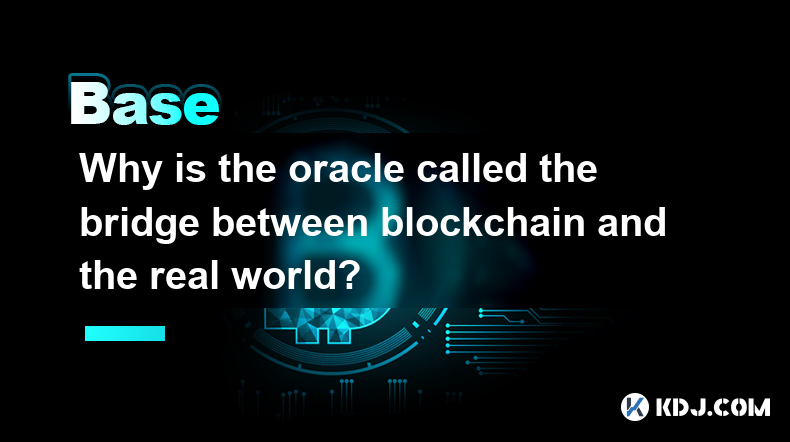
The concept of an oracle in the cryptocurrency and blockchain world is crucial for understanding how these decentralized systems interact with external data. The oracle is often referred to as the bridge between blockchain and the real world because it serves as a vital intermediary that fetches, verifies, and transmits off-chain data to the on-chain environment. This capability is essential for smart contracts and decentralized applications (dApps) to function effectively by accessing real-world information that is not natively available on the blockchain.
What is an Oracle?
An oracle is a service that provides smart contracts with external data. This data can include anything from price feeds, weather reports, to the outcome of events. Without oracles, smart contracts would be limited to the data already present on the blockchain, which would severely restrict their functionality and potential applications.
How Oracles Function
Oracles work by collecting data from external sources, verifying its accuracy, and then feeding it into the blockchain. This process involves several steps:
- Data Collection: Oracles gather information from various external sources such as APIs, databases, or even IoT devices.
- Data Verification: To ensure the reliability of the data, oracles often use multiple sources and employ consensus mechanisms to validate the information.
- Data Transmission: Once verified, the data is transmitted to the blockchain where it can be used by smart contracts.
Importance of Oracles in Smart Contracts
Smart contracts are self-executing contracts with the terms of the agreement directly written into code. They automatically execute actions based on predefined conditions. However, these conditions often depend on real-world data, which is where oracles come into play. For example, a smart contract for a decentralized insurance policy might need to access weather data to determine if a payout should be triggered. Without an oracle, the contract would not be able to access this information and thus could not function as intended.
Examples of Oracle Use Cases
To illustrate the role of oracles, consider the following examples:
- Decentralized Finance (DeFi): In DeFi applications, oracles are used to provide price feeds for assets. For instance, a lending platform might use an oracle to determine the collateral value of a cryptocurrency.
- Supply Chain Management: Oracles can be used to track the movement of goods and verify their authenticity by providing real-time data to the blockchain.
- Gaming and Betting: In decentralized gaming and betting platforms, oracles can provide outcomes of events or random numbers to ensure fairness and transparency.
Challenges and Solutions
While oracles are essential, they also introduce certain challenges. One major concern is the trustworthiness of the data. If an oracle provides inaccurate or manipulated data, it can lead to incorrect execution of smart contracts. To address this, several solutions have been developed:
- Decentralized Oracles: By using multiple oracles and requiring consensus among them, the risk of manipulation is reduced. Projects like Chainlink use a network of decentralized oracles to enhance data reliability.
- Incentive Mechanisms: Some oracle networks incentivize accurate data reporting through rewards and penalties, encouraging honest behavior.
- Cryptographic Techniques: Advanced cryptographic methods can be used to ensure the integrity and confidentiality of the data transmitted by oracles.
Technical Implementation of Oracles
Implementing an oracle involves several technical steps. Here is a detailed guide on how to set up an oracle for a smart contract:
- Choose an Oracle Service: Select a reliable oracle service such as Chainlink, Band Protocol, or a custom solution.
- Define Data Requirements: Clearly define the type of data your smart contract needs. For example, if it's a price feed, specify the asset and the frequency of updates.
- Set Up the Oracle Contract: Deploy a smart contract that will interact with the oracle. This contract will contain functions to request and receive data from the oracle.
- Integrate the Oracle: Use the chosen oracle service's API or SDK to integrate it with your smart contract. This typically involves calling the oracle's functions from within your smart contract to request data.
- Test and Verify: Thoroughly test the integration to ensure that the oracle correctly supplies the required data and that the smart contract functions as expected.
Security Considerations
Security is paramount when dealing with oracles. Since oracles are a point of interaction between the blockchain and the outside world, they can be vulnerable to attacks. Here are some security measures to consider:
- Data Source Diversity: Use multiple data sources to mitigate the risk of a single point of failure or manipulation.
- Encryption: Encrypt data in transit to protect it from interception and tampering.
- Access Control: Implement strict access controls to ensure that only authorized parties can interact with the oracle.
- Regular Audits: Conduct regular security audits of the oracle system to identify and fix vulnerabilities.
Real-World Impact of Oracles
The integration of oracles into blockchain systems has had a significant real-world impact. They have enabled the creation of more complex and useful decentralized applications. For example, oracles have facilitated the growth of DeFi by allowing platforms to access real-time price data, which is crucial for lending, borrowing, and trading activities. Additionally, oracles have played a key role in the development of decentralized prediction markets, where they provide the outcomes of events that determine the results of bets.
Frequently Asked Questions
Q1: Can a smart contract function without an oracle?
A smart contract can function without an oracle if it only needs data that is already on the blockchain. However, for most practical applications, access to real-world data is necessary, making oracles indispensable.
Q2: How do oracles ensure the accuracy of the data they provide?
Oracles ensure data accuracy through several methods, including using multiple data sources, implementing consensus mechanisms, and employing cryptographic techniques to verify and secure the data.
Q3: Are there any alternatives to using oracles for accessing external data?
While oracles are the most common solution, alternatives include using decentralized data marketplaces where users can submit data directly to the blockchain. However, these alternatives often face similar challenges regarding data accuracy and trustworthiness.
Q4: What are the costs associated with using oracles?
The costs of using oracles can vary depending on the service and the frequency of data requests. Typically, there are fees for both the oracle service itself and the transaction costs associated with sending data to the blockchain.
Disclaimer:info@kdj.com
The information provided is not trading advice. kdj.com does not assume any responsibility for any investments made based on the information provided in this article. Cryptocurrencies are highly volatile and it is highly recommended that you invest with caution after thorough research!
If you believe that the content used on this website infringes your copyright, please contact us immediately (info@kdj.com) and we will delete it promptly.
- As Excitement Continues to Swell Around XRP's Bullish Potential
- 2025-04-05 06:30:12
- Bitcoin (BTC) Drops to $82,000 Following Donald Trump's Widespread Tariffs
- 2025-04-05 06:30:12
- Bitcoin (BTC) is trading at $84,003, facing potential bearish pressure across multiple timeframes
- 2025-04-05 06:25:12
- Binance (BNB) Confirms That FDUSD's Reserves Exceed Its Circulation
- 2025-04-05 06:25:12
- Payment giant PayPal adds Solana (SOL) and Chainlink (LINK) to its growing list of supported digital assets
- 2025-04-05 06:20:12
- Binance Declines to List Pi Network in Its Newest Vote to List Initiative
- 2025-04-05 06:20:12
Related knowledge

Why is the oracle called the bridge between blockchain and the real world?
Apr 04,2025 at 04:00am
The concept of an oracle in the cryptocurrency and blockchain world is crucial for understanding how these decentralized systems interact with external data. The oracle is often referred to as the bridge between blockchain and the real world because it serves as a vital intermediary that fetches, verifies, and transmits off-chain data to the on-chain en...
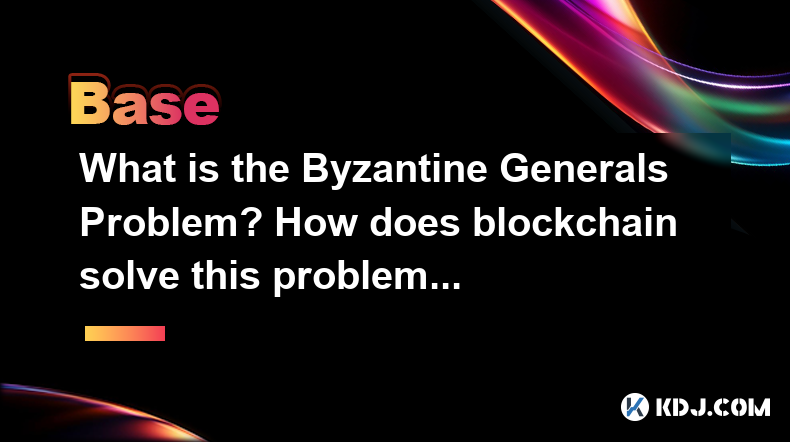
What is the Byzantine Generals Problem? How does blockchain solve this problem?
Apr 05,2025 at 06:29am
The Byzantine Generals Problem is a classic problem in the field of distributed computing and computer science, which has significant implications for the reliability and security of decentralized systems, including blockchain technology. This problem is named after a hypothetical scenario involving several generals of the Byzantine army who must coordi...
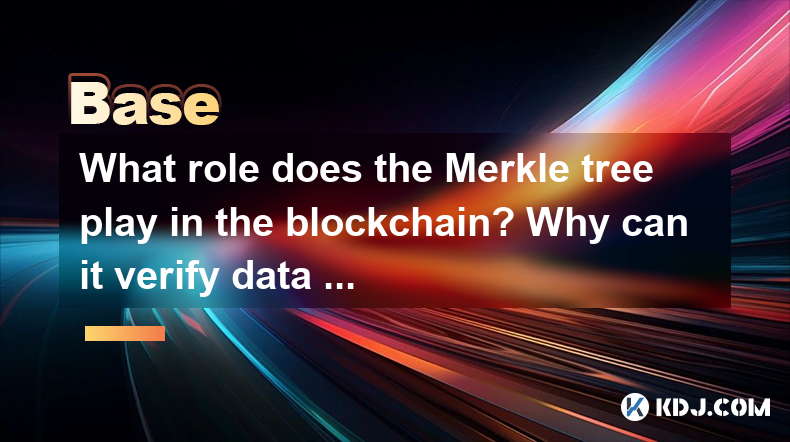
What role does the Merkle tree play in the blockchain? Why can it verify data integrity?
Apr 04,2025 at 01:29pm
The Merkle tree plays a crucial role in the blockchain, primarily due to its ability to efficiently and securely verify data integrity. This article will delve into the structure of a Merkle tree, its implementation in blockchain, and how it ensures the integrity of data. Understanding the Structure of a Merkle TreeA Merkle tree, also known as a hash tr...
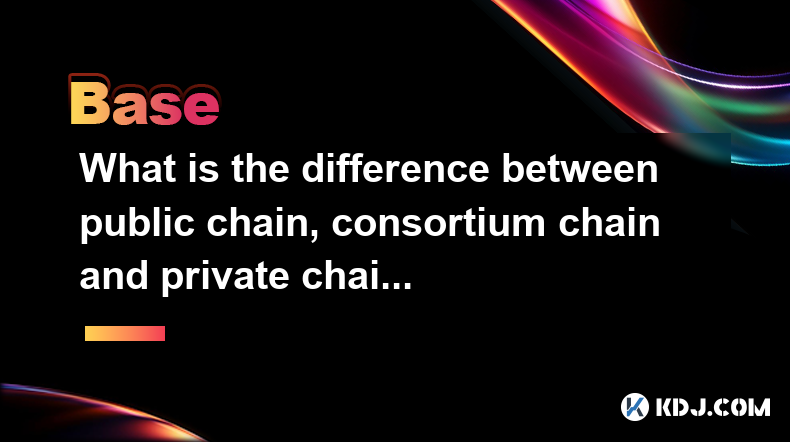
What is the difference between public chain, consortium chain and private chain? What scenarios are suitable for each?
Apr 04,2025 at 09:21pm
In the world of blockchain technology, understanding the differences between public chains, consortium chains, and private chains is crucial for selecting the right type of blockchain for specific applications. Each type of blockchain has its own unique characteristics and use cases, which we will explore in detail. Understanding Public ChainsPublic cha...
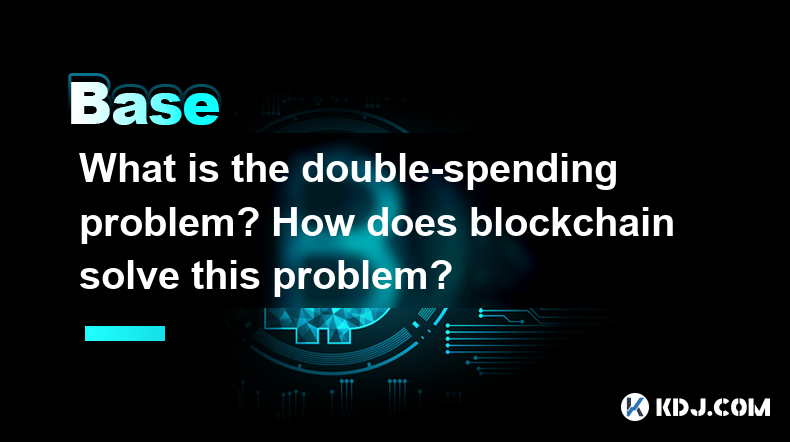
What is the double-spending problem? How does blockchain solve this problem?
Apr 04,2025 at 09:07am
The double-spending problem is a significant challenge in the realm of digital currencies. Double-spending refers to the potential for a digital currency to be spent more than once. This issue arises because digital files, unlike physical cash, can be easily duplicated. If not addressed, double-spending could undermine the integrity and trust in any dig...
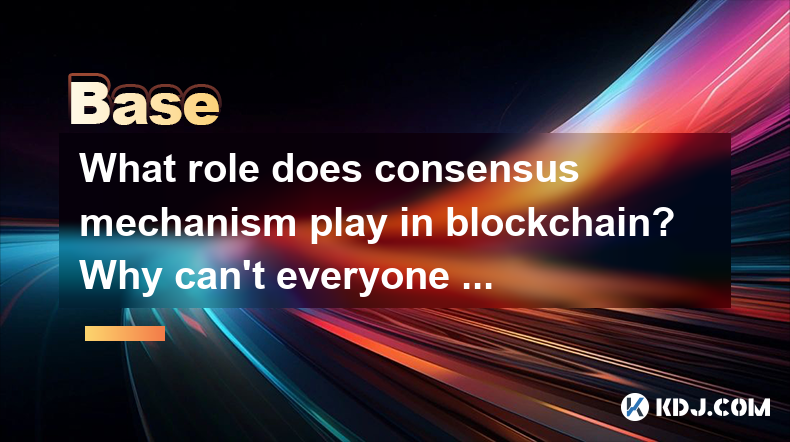
What role does consensus mechanism play in blockchain? Why can't everyone keep accounts?
Apr 05,2025 at 12:29am
The consensus mechanism is a fundamental component of blockchain technology, serving as the backbone for maintaining the integrity and security of the network. It ensures that all participants in the network agree on the state of the ledger, which is crucial for the decentralized nature of blockchain. Without a consensus mechanism, the decentralized sys...

Why is the oracle called the bridge between blockchain and the real world?
Apr 04,2025 at 04:00am
The concept of an oracle in the cryptocurrency and blockchain world is crucial for understanding how these decentralized systems interact with external data. The oracle is often referred to as the bridge between blockchain and the real world because it serves as a vital intermediary that fetches, verifies, and transmits off-chain data to the on-chain en...

What is the Byzantine Generals Problem? How does blockchain solve this problem?
Apr 05,2025 at 06:29am
The Byzantine Generals Problem is a classic problem in the field of distributed computing and computer science, which has significant implications for the reliability and security of decentralized systems, including blockchain technology. This problem is named after a hypothetical scenario involving several generals of the Byzantine army who must coordi...

What role does the Merkle tree play in the blockchain? Why can it verify data integrity?
Apr 04,2025 at 01:29pm
The Merkle tree plays a crucial role in the blockchain, primarily due to its ability to efficiently and securely verify data integrity. This article will delve into the structure of a Merkle tree, its implementation in blockchain, and how it ensures the integrity of data. Understanding the Structure of a Merkle TreeA Merkle tree, also known as a hash tr...

What is the difference between public chain, consortium chain and private chain? What scenarios are suitable for each?
Apr 04,2025 at 09:21pm
In the world of blockchain technology, understanding the differences between public chains, consortium chains, and private chains is crucial for selecting the right type of blockchain for specific applications. Each type of blockchain has its own unique characteristics and use cases, which we will explore in detail. Understanding Public ChainsPublic cha...

What is the double-spending problem? How does blockchain solve this problem?
Apr 04,2025 at 09:07am
The double-spending problem is a significant challenge in the realm of digital currencies. Double-spending refers to the potential for a digital currency to be spent more than once. This issue arises because digital files, unlike physical cash, can be easily duplicated. If not addressed, double-spending could undermine the integrity and trust in any dig...

What role does consensus mechanism play in blockchain? Why can't everyone keep accounts?
Apr 05,2025 at 12:29am
The consensus mechanism is a fundamental component of blockchain technology, serving as the backbone for maintaining the integrity and security of the network. It ensures that all participants in the network agree on the state of the ledger, which is crucial for the decentralized nature of blockchain. Without a consensus mechanism, the decentralized sys...
See all articles





















































































